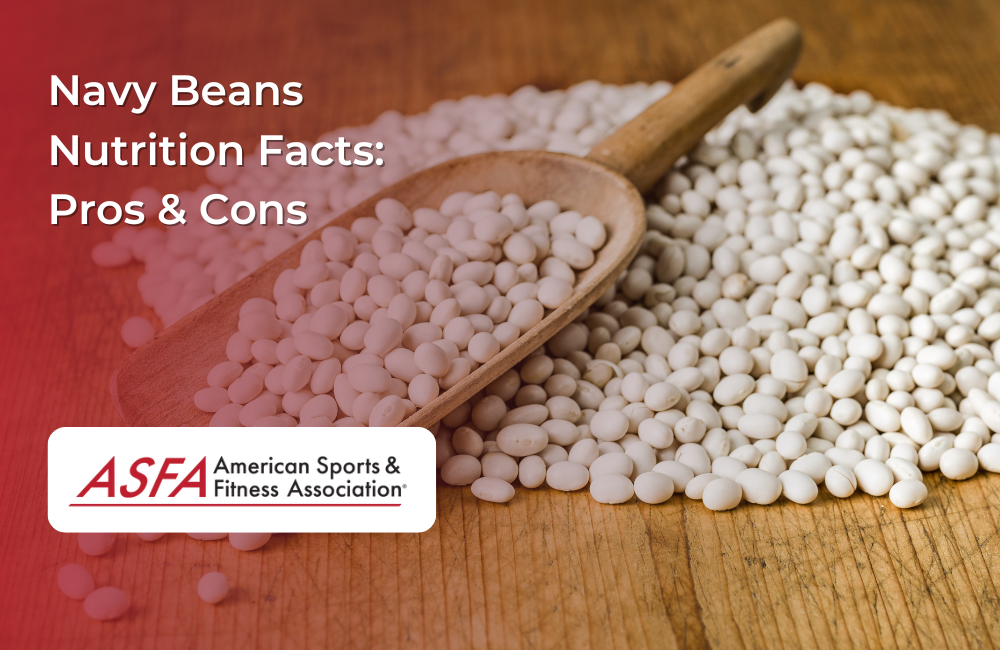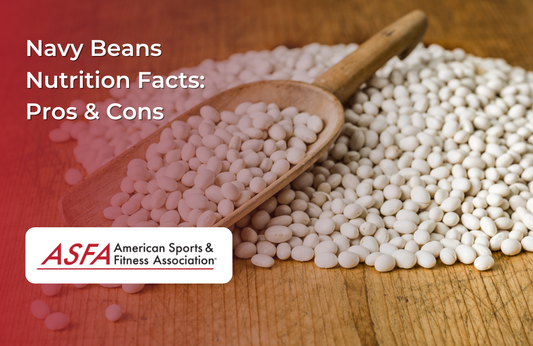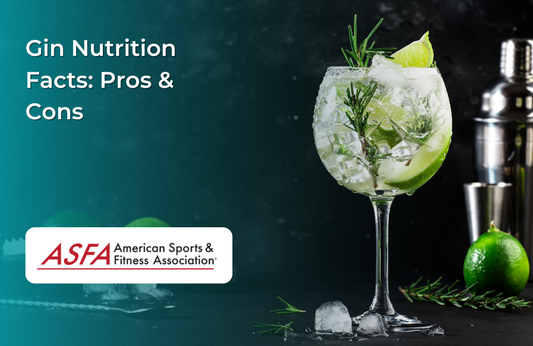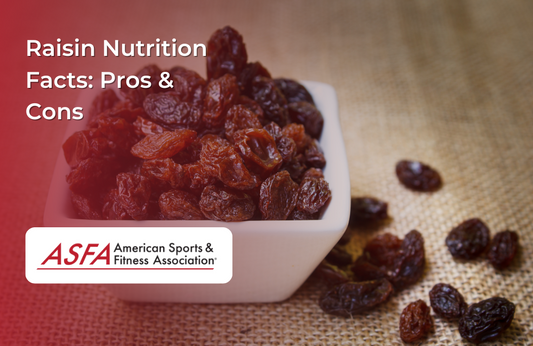Navy beans are a small, nutrient-dense legume packed with protein, fiber, and essential vitamins and minerals. They are an excellent plant-based protein source and support heart health, digestion, and blood sugar regulation. However, they can cause digestive discomfort for some individuals and contain compounds that may interfere with nutrient absorption.
Navy Beans Nutrition Facts: Pros, Cons, and Nutritional Profile
Navy bean nutrition facts reveal that one cup (about 182 grams) of cooked navy beans provides:
-
Calories: Around 255
-
Carbohydrates: 47 grams
-
Fiber: 19 grams
-
Protein: 15 grams
-
Fat: 1 gram
-
Sugar: 0.5 grams
-
Vitamins and Minerals:
-
Folate: Supports red blood cell production and brain health
-
Iron: Essential for oxygen transport in the blood
-
Magnesium: Helps with muscle and nerve function
-
Potassium: Supports heart health and fluid balance
-
Phosphorus: Important for bone health
What are Navy Beans?
Navy beans, also known as haricot beans, pearl haricot beans, or white pea beans, are a type of legume celebrated for their high protein, fiber, and nutrient content. These small, pea-sized beans are creamy white in color and have a mild, slightly nutty flavor. Navy beans are a staple food in many cuisines around the world, thanks to their versatility and nutritional benefits. In North America, they are famously used in Boston baked beans, a classic dish that showcases their ability to absorb flavors and provide a hearty, satisfying meal. Whether you call them navy beans, pea beans, or pearl haricot beans, these legumes are a nutritious addition to any diet.
Pros of Eating Navy Beans
High in Protein and Supports Muscle Growth
-
Provides 15 grams of protein per cup, making it a great plant-based protein source.
-
Helps support muscle repair and maintenance, especially for vegetarians and vegans.
Excellent Source of Dietary Fiber for Digestive Health
19 grams of dietary fiber per serving, which promotes gut health and regular bowel movements.
Acts as a prebiotic, feeding beneficial gut bacteria.
Supports Heart Health
High in potassium, magnesium, and fiber, which help regulate blood pressure and cholesterol.
May reduce LDL (bad cholesterol) and support overall cardiovascular health. Navy beans are also a great alternative to protein sources high in saturated fat.
Helps Regulate Blood Sugar
-
Low glycemic index and high fiber content help prevent blood sugar spikes.
-
A great food for diabetics and those managing blood sugar levels.
May Aid in Weight Management
-
High fiber and protein promote satiety, reducing cravings and overeating.
-
Low in fat and nutrient-dense, making it a filling, healthy choice.
Budget-Friendly and Versatile
Affordable and widely available, making it a great option for meal planning.
Can be used in soups, stews, salads, and side dishes. Canned beans are also convenient and versatile, perfect for various recipes such as soups and casseroles.
Cons of Eating Navy Beans
Can Cause Digestive Issues
-
High fiber content may lead to bloating and gas, especially for those not used to legumes.
-
Contains raffinose, a type of carbohydrate that can be difficult to digest.
Contains Antinutrients
-
Phytic acid and lectins can interfere with the absorption of minerals like iron and zinc.
-
Soaking and cooking beans properly reduces these compounds and improves nutrient absorption.
High in Carbohydrates
-
47 grams of carbs per cup, which may not be ideal for low-carb or keto diets.
-
While these are complex carbs, portion control is key for those monitoring carbohydrate intake.
Requires Proper Preparation
Preparing navy beans involves soaking and cooking them to reduce antinutrients and improve digestion. To cook navy beans properly, it is essential to rinse and select them carefully, ensuring they are thoroughly prepared before cooking to enhance their nutritional benefits and versatility in various dishes. Improperly cooked beans can be hard to digest and cause stomach discomfort.
Preparation Methods
Navy beans can be prepared in a variety of ways, making them a versatile ingredient in the kitchen. One of the most common methods is cooking, which involves soaking the beans in water for several hours or overnight, then boiling them until they are tender. This process not only softens the beans but also helps to reduce their antinutrient content, making them easier to digest.
Another method is sprouting, which involves soaking the beans and then allowing them to germinate. Sprouting can increase the nutritional value of navy beans, enhancing their vitamin and mineral content. This method is particularly popular among those looking to maximize the health benefits of their plant foods.
Canning is a convenient way to preserve navy beans for later use. Canned navy beans are pre-cooked and ready to use, making them a quick and easy addition to soups, stews, salads, and side dishes. Whether you choose to cook, sprout, or use canned navy beans, each method offers unique benefits and makes it easy to incorporate these nutritious legumes into your diet.
Benefits of Cooked Navy Beans
Cooked navy beans are a powerhouse of nutrition, offering a wealth of health benefits that make them a valuable addition to any diet. High in protein, fiber, and essential nutrients, cooked navy beans are not only filling but also incredibly versatile. They can be used in a variety of dishes, from hearty soups and stews to fresh salads and flavorful side dishes.
One of the standout health benefits of cooked navy beans is their ability to support heart health. Rich in potassium, magnesium, and fiber, they help regulate blood pressure and cholesterol levels, reducing the risk of heart disease. Additionally, their low glycemic index and high fiber content make them an excellent choice for managing blood sugar levels, which is particularly beneficial for diabetics.
Cooked navy beans also promote a feeling of fullness and satisfaction, which can aid in weight management by reducing cravings and overeating. Their high fiber content supports healthy digestion, acting as a prebiotic to feed beneficial gut bacteria and promote regular bowel movements.
Furthermore, cooked navy beans are packed with vitamins and minerals, including folate, magnesium, and potassium, which contribute to overall health and well-being. They help reduce inflammation, support immune function, and provide sustained energy throughout the day.
In summary, cooked navy beans are a nutritious and delicious ingredient that can enhance a variety of dishes while supporting overall health. Whether you’re looking to improve heart health, manage blood sugar, or simply enjoy a satisfying meal, cooked navy beans are a fantastic choice.
Conclusion
Navy beans are a high-protein, fiber-rich legume that supports digestion, heart health, and blood sugar regulation. However, they can cause bloating and contain antinutrients, which may interfere with mineral absorption. Soaking and cooking navy beans properly helps maximize benefits while minimizing drawbacks.
FAQs
Are navy beans good for weight loss?
Yes, they are low in fat, high in fiber, and help promote fullness, making them a great addition to a weight-loss diet.
Do navy beans cause gas?
Yes, their high fiber and raffinose content can cause gas and bloating. Soaking and cooking them thoroughly can help.
Are navy beans high in protein?
Yes, 15 grams of protein per cup makes them an excellent plant-based protein source.
Can diabetics eat navy beans?
Yes, navy beans have a low glycemic index and help regulate blood sugar levels, making them a good option for diabetics.
How can I make navy beans easier to digest?
Soaking them for 8-12 hours before cooking and rinsing well reduces gas-causing compounds.
Are navy beans good for heart health?
Yes, their fiber, potassium, and magnesium content help lower cholesterol and regulate blood pressure.
Do navy beans contain iron?
Yes, navy beans provide about 4 mg of iron per cup, making them a good source of plant-based iron.
Can I eat navy beans every day?
Yes, they can be part of a healthy diet, but balance them with other protein and fiber sources to prevent digestive discomfort.





